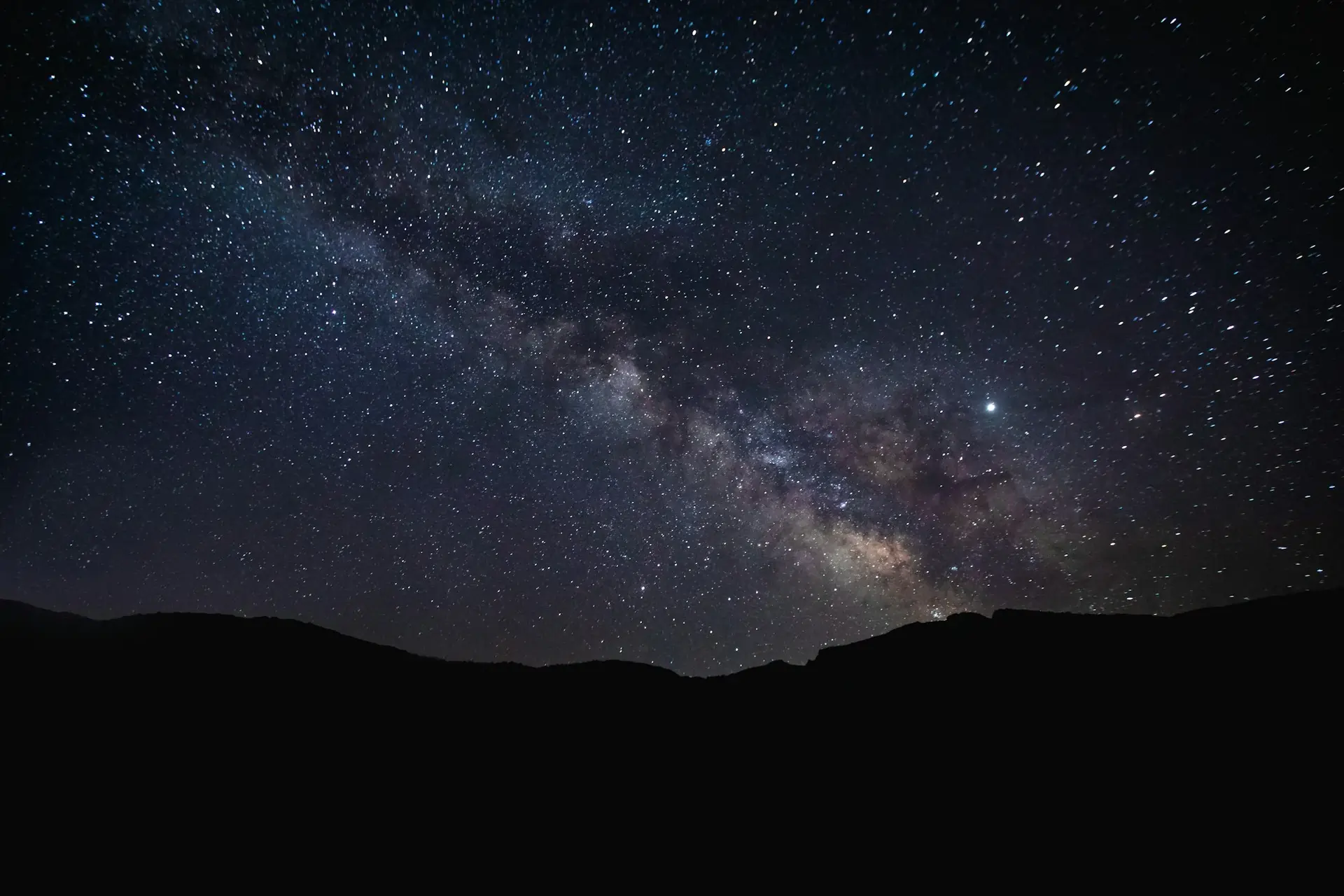Most people visit Montenegro for the coastline - and never realise that 45 minutes inland, the night sky still looks like it did a century ago.
Drive past the last village lights, let your eyes adjust, and the sky stops being “stars” and becomes structure: the Milky Way stretched overhead, satellites drifting, occasional meteors cutting the dark in silence. No resorts. No traffic. Just mountains and sky.
If you want to see the Milky Way with the naked eye, you don’t need a telescope. You just need a dark horizon, a moonless night, and the right spot.
Below are the locations I use when guiding stargazing and night hikes — places where the sky still feels wild.
Why the Balkans Are Ideal for Stargazing
- Very low light pollution: Outside a few coastal towns, the Balkans are still largely rural. Once you leave Podgorica, Kotor or Tirana, you’re in genuine dark-sky territory.
- High, dry air at altitude: Durmitor, Bjelasica and Orjen all rise above 1,500–2,000m — above haze, humidity and coastal glare.
- Warm, clear nights (June–September): Mountain evenings stay comfortable, especially on plateaus where airflow keeps condensation low.
- Easy access: Unlike Alps or Pyrenees summits, you can reach world-class dark sky in the Balkans by car + short hike, not a 2-day expedition.
Durmitor National Park - Sedlo Pass (1,907 m)
One of the darkest, most open viewpoints in all of Montenegro. Park at the bend before the tunnel, walk 5 minutes to the saddle, and the sky opens in every direction.
- Best months: July–September (new moon nights)
- Why it works: Zero nearby settlements, clean mountain air, 360° horizon
- Tip: Wind can pick up after sunset — pack a light shell even in August
- Bonus: Look south after 22:00 in mid-summer - the Milky Way core rises over Prutaš
Bjelasica / Biogradska Gora - Zekova Glava or Biogradsko Lake
A quieter alternative to Durmitor. Meadows, katuns and reflective lakes make it great for night photography.
Zekova Glava summit (2,117 m): Short, steep hike from the ski road above Kolašin - huge sky, no light dome.
Biogradsko Lake (1,094 m): No hike needed - wide open sky reflected in the water when the air is still.
- Best months: June–September
- Local detail: Shepherd dogs are active at night - stay calm, keep headlamp low, walk past confidently.
Prokletije / Albanian Alps - Valbona Pass
Wild, remote and silent - the nearest light source is a village 1,000 m below.
- Best approach: Hike up in golden hour, stay for the stars, then sleep in the pass meadow or descent with headlamps.
- Sky quality: Outstanding on moonless nights - arm of the Milky Way is easily visible with the naked eye.
- Note: Nights get cold even in summer — bring layers.
Orjen Mountains - Subra Plateau (1,679 m)
The closest true dark-sky location to Kotor and Herceg Novi. Karst plateau, no trees, huge sky. Great for first-timers.
- Access: 45–60 min drive from Boka Bay + 45-min hike
- Best time: June–August, before the autumn bura winds return
- Viewing direction: South and southwest for the brightest Milky Way arc
- Local detail: Breeze usually calms down after 22:00 - perfect window for long-exposure photography
Tips for First-Time Stargazers
- Check the moon - full moon = no Milky Way. New moon = best sky.
- Let your eyes adapt - 20–30 minutes without white light.
- Use red light only - preserves night vision (bring a headlamp with red mode).
- Tripod for photos - even a cheap one is better than none.
- Warm layer - temperatures drop fast in the mountains, even after hot days.
You do not need a telescope. The Milky Way is fully visible to the naked eye in these locations.
Guided Stargazing Nights - Boka Bay Region
An unforgettable experience under the Balkan stars€60 per person · €30 children
Small group · Guided night-sky experience · Headtorches and stargazing equipment provided
Locations vary by date across mountain viewpoints above the Bay of Kotor, selected for the best sunset and sky conditions. Always 30–60 min from Kotor / Herceg Novi. Perfect for couples, families, photographers, or anyone who's never seen a true dark sky.
When to Go
| Season | Conditions | Notes |
|---|---|---|
| May–June | Long twilight, cooler nights | Less crowded, wildflowers still out |
| July–August | Best Milky Way visibility | Peak demand, warmest nights |
| Sept–Oct | Crisp skies, colder after dark | Great for photography, fewer tourists |
Final Thought
If you've only ever looked at the night sky from a city, the first time you stand in a Balkan mountain pass after dark feels unreal. You don’t just see the sky - you feel the scale of it.
Whether you go alone or join a guided night hike, don’t leave Montenegro without looking up.
